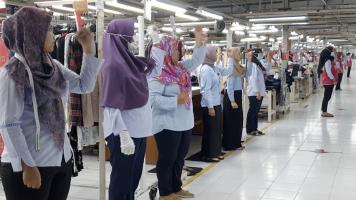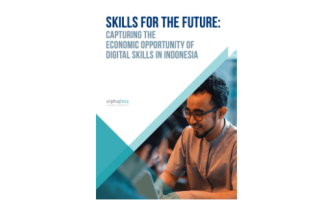Unlocking Opportunities through Affordable Private Education
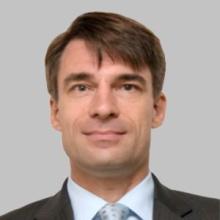
Principal Economist, Private Sector Operations Department, Asian Development Bank
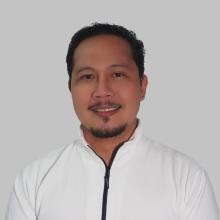
Consultant, Asian Development Bank
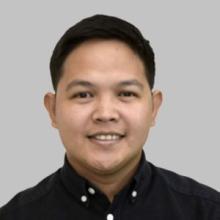
Associate Economics Officer, Private Sector Operations Department, Asian Development Bank
Horizon University students engage in a classroom session with their teacher, gaining practical skills and knowledge designed to prepare them for future careers. Photo credit: ADB.
A successful model of 'bare bones, no frills, brass knuckles education' in the Philippines is replicated in Indonesia to make tertiary education more accessible to underserved youth.
Education has always been a powerful force for change. It opens doors, fuels dreams, and gives young people the chance to break free from the cycle of poverty. Yet for millions across Asia, especially those from low-income backgrounds, a college degree remains out of reach because of financial barriers and a mismatch between academic programs and industry needs. By investing in education, ADB seeks to address these challenges and empower individuals and communities to achieve long-term prosperity.
In 2004, Philippine company PHINMA Education was established to make higher education affordable and industry-aligned for underserved youth in the country. Starting with just one university, the institution has grown into a network of ten colleges and universities, serving more than 150,000 students today.
Majority of these students come from low-income families. Yet, through PHINMA’s accessible, skills-focused approach, they graduate not only with a degree but with the confidence and competencies to secure meaningful jobs. This model of “bare bones, no frills, brass knuckles education”—providing essential facilities, strong faculty, and targeted support systems at low cost—has proven both effective and transformative.
Indonesia’s untapped potential
Like the Philippines, Indonesia faces a pressing challenge: access to affordable, quality tertiary education remains limited. Data from the Organisation for Economic Co-operation and Development (OECD) shows that in 2023, only 13.6% of Indonesians aged 25 to 34 had obtained a tertiary degree.1 For many young Indonesians, the financial burden of higher education forces them to enter the workforce early, leaving dreams of a college diploma unfulfilled.
Recognizing this gap, the Asian Development Bank (ADB) made a $12 million equity investment in PHINMA Education in 2019 to support its entry into Indonesia. This marked the beginning of a new chapter with the establishment of Horizon University in Karawang, West Java.
Chito Salazar, president and chief executive officer of PHINMA Education, explains: “Education is really the route out of poverty. We truly believe that education is the key to breaking the cycle of poverty. For many low-income families, it’s the only way that they can rise out of poverty. It’s to get a good education. The problem is—a good quality education is oftentimes too expensive for low-income families. We found a way to make education more accessible.”
This philosophy has quickly taken root in Indonesia. Since 2019, Horizon University’s student population has grown by 141% as of 2024. In addition, the inclusion of Kalbis University under PHINMA’s management in 2024 expanded its reach to Jakarta, further broadening opportunities for Indonesian youth.
Transforming lives, one student at a time
Behind the numbers are real lives transformed. For many Indonesian students, PHINMA Education’s Horizon University represents more than just a school—it is a gateway to opportunities they once thought were out of reach.
From a lost dream to building an IT career
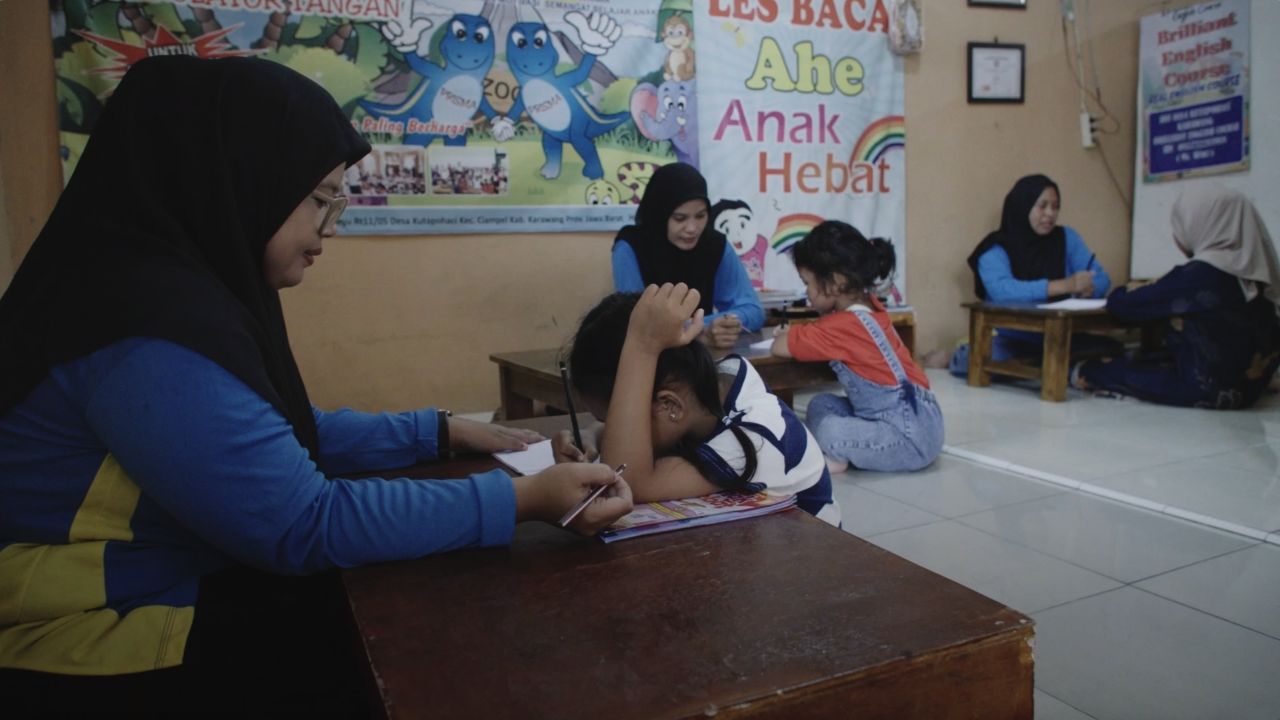
At 26, Irawati once believed college was beyond her reach. “My 70-year-old father, our family’s breadwinner, works as a construction laborer with an irregular income. There was no way I could go to college,” she shares. With limited slots at state universities, she considered abandoning her dream of becoming an IT professional.
Horizon University changed her story. Today, she enjoys access to modern facilities—the computer lab, library, and air-conditioned classrooms—and a strong support system. “My schedule allows me to work as a reading and writing tutor for preschool children. It helps me earn while I learn, while preparing for a career in IT.”
Balancing family and education
For Jokin Darren Genova, whose family runs a small aquatic pet shop, the financial hurdle of higher education was daunting. “Our income is not enough to fund my university education. I wanted to study accounting,” he explains.
A 100% academic scholarship from Horizon University gave him the chance to pursue his ambition.
“I like how flexible they are. I attend classes in the morning, then go home in the afternoon to help my parents run the pet shop. I am determined to become a licensed accountant and secure a job in the corporate world.”
From student to faculty member
For Horizon alumna Ani Suryani, the university not only provided a pathway to her nursing degree but also helped her discover her vocation as an educator. “Pursuing higher education in health care used to be very difficult. I chose Horizon Indonesia University because it is affordable, and I found the curriculum to be more relevant compared to other universities,” she recalls.
Now a licensed nurse and part of Horizon’s nursing faculty, Ani is giving back by mentoring the next generation. “I always wanted to help students, especially those from lower-income backgrounds, achieve their dreams.”
PHINMA’s entry into Indonesia demonstrates the role private sector institutions can play in addressing gaps left by public education systems. By offering affordable tuition, flexible programs, and scholarship opportunities, PHINMA ensures that education does not stop at a diploma—it leads directly to employment and better quality of life.
As Salazar emphasizes: “ADB’s support has helped us make this a reality for Indonesian families. Because everyone, no matter who they are, no matter where they’re from, no matter what they believe in, should have access to a degree that helps them get a job and a better quality of life.”
With its rapid growth in Indonesia, PHINMA Education is proving that inclusive, industry-relevant education can be scaled to meet the needs of underserved communities. Its expansion signals not just a new chapter for Indonesian students but a vision for how education, backed by private sector innovation and development finance, can unlock opportunities across Asia.
In the years to come, more students will find their pathways to success—not by circumstance, but by access to education that transforms lives.
This article is adapted from the video Creating Pathways to Success through Affordable Private Education published by ADB in May 2025.
1 Accessed 4 February 2025 on the OECD Education GPS website
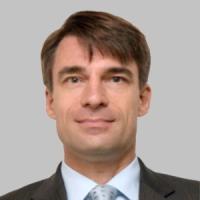
Manfred Kiefer
Principal Economist, Private Sector Operations Department, Asian Development BankManfred Kiefer is a principal economist at ADB’s Private Sector Operations Department. He is primarily involved in assessing development results of ADB’s investments. Prior to this role, he worked as energy economist and development results specialist at different international financial institutions. He holds an MSc in Economics from Freie Universität Berlin.
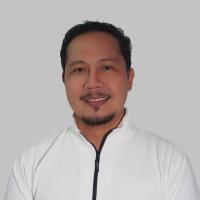
Arvin Yana
Consultant, Asian Development BankArvin Yana is an Australia-educated communications specialist with over 2 decades of experience in strategic communication and knowledge management promoting various development programs across different sectors. He has developed a range of communication and knowledge products highlighting ADB's development impact and its significant role in driving progress and transforming lives.
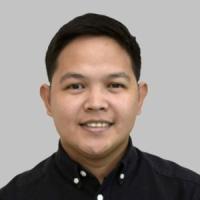
Christian Abeleda
Associate Economics Officer, Private Sector Operations Department, Asian Development BankChristian Abeleda works as an associate economics officer at ADB’s Private Sector Operations Department. He supports private sector projects, particularly in the agribusiness sector, by preparing economic evaluations and enhancing development impacts perspectives. His research focus is on monitoring and evaluation of impacts of agricultural development projects.
